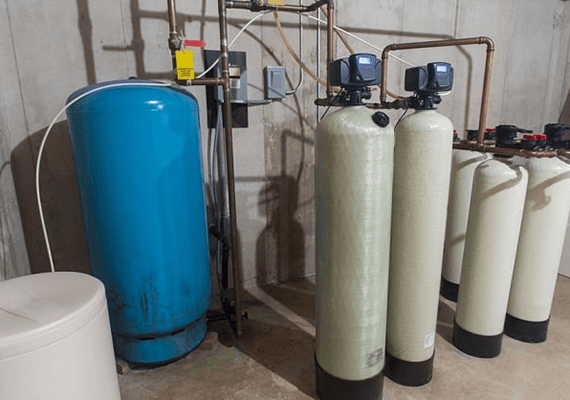Residential Hybrid Water Softener Is the Ultimate Home Upgrade for Cleaner, Softer, and Safer Water

Water plays a crucial role in every aspect of daily life, from drinking and cooking to bathing and cleaning. Poor water quality can subtly affect comfort and health, leaving soap less effective, dishes spotted, and appliances prone to scale buildup. Beyond these practical concerns, water quality also influences taste, the efficiency of household cleaning, and even the overall ambiance of the home.
Many homeowners underestimate the impact of water quality. Soft, clean water can make showers feel gentler, laundry softer, and food and beverages taste better. Recognizing water as a vital component of home wellness motivates the search for solutions that combine efficiency, convenience, and long-term benefits.
Common Household Water Challenges
Homes often face issues such as hard water, sediment, chlorine, and other contaminants. Hard water contains calcium and magnesium minerals that can accumulate in pipes and appliances, reducing their efficiency and lifespan. Chlorine and other chemicals may leave a taste or odor in the water, while sediment can cloud water or deposit residue on fixtures.
Traditional water softeners address only hardness, and standard filtration systems may only improve taste and clarity. When a home faces both hard water and chemical or particulate contamination, relying on separate systems can increase complexity, maintenance, and space requirements. Homeowners need a solution that provides both softening and filtration in a single, streamlined system.
Advantages of a Residential Hybrid Water Softener
A residential hybrid water softener offers a complete approach to water quality by combining the benefits of softening and filtration in a single unit. This system removes scale-forming minerals while filtering out sediments, chlorine, and other common impurities. The result is water that is both gentler on the skin and safer for consumption, with an improved taste and clarity that enhances every aspect of daily life.
Beyond drinking water, the hybrid system protects appliances from scale buildup, prolonging the life of water heaters, dishwashers, and washing machines. Laundry becomes softer and dishes shine without spots, and bathing feels smoother and more comfortable. The integration of both technologies into one compact system also reduces maintenance requirements, making it a practical and efficient upgrade for modern households.
How Hybrid Systems Operate
Hybrid water softeners typically combine a water softening stage with an advanced filtration process. Hardness minerals like calcium and magnesium are removed first, preventing scale from forming in pipes and appliances. Water then passes through a filtration stage that removes sediment, chlorine, and other impurities that affect taste, odor, and water clarity.
This dual-stage process ensures that every faucet delivers clean, soft water throughout the home. Unlike traditional separate systems, a hybrid system streamlines maintenance, reduces installation space, and delivers consistent results without frequent adjustments. It also consumes fewer resources, including water and salt, compared to older softening systems, making it a more environmentally conscious choice.
Benefits for Daily Life
Installing a hybrid water softener has a noticeable impact on everyday routines. Drinking water becomes smoother and more refreshing, cooking water enhances the flavor of meals, and beverages taste purer. Bathing is gentler on skin and hair, leaving them softer and healthier.
Laundry and dishwashing also benefit: clothes feel softer, towels retain their fluffiness, and glassware comes out spotless. Appliances operate more efficiently because reduced scale buildup improves their performance, lowers energy consumption, and extends their service life. These benefits combine to create a more comfortable, convenient, and sustainable home environment.
Health and Household Advantages
Filtered and softened water supports overall health by reducing exposure to minerals, chlorine, and other contaminants that can affect the taste and quality of drinking water. Families with children or individuals with sensitive health conditions benefit particularly from the removal of unwanted chemicals and minerals.
Additionally, protecting household plumbing and appliances reduces the need for repairs and maintenance. Pipes remain clearer, water heaters operate more efficiently, and dishwashers and washing machines perform better over time. These improvements translate into long-term cost savings and reduced household stress, making the hybrid system a practical investment.
Choosing the Right Hybrid Water Softener
When selecting a hybrid system, homeowners should consider household water quality, water usage, and system capacity. Whole-house units provide consistent water quality throughout every faucet, shower, and appliance, while smaller point-of-use options may focus on drinking and cooking water.
Maintenance is straightforward, involving periodic filter changes and system checks to ensure optimal performance. Choosing a system with clear guidance and accessible support ensures long-term reliability and maximum value.
Conclusion: A Smart Investment for Health, Comfort, and Efficiency
A residential hybrid water softener is more than a water treatment system—it is a long-term home upgrade. It provides clean, soft, and better-tasting water, improves appliance performance, reduces maintenance needs, and enhances daily living.
Investing in a hybrid system transforms water from a background necessity into a household asset that improves comfort, health, and efficiency. With the right system, every glass, shower, and load of laundry benefits from high-quality water, making this upgrade a practical and rewarding choice for any home.
- Sports
- Art
- Causes
- Crafts
- Dance
- Drinks
- Film
- Fitness
- Food
- Παιχνίδια
- Gardening
- Health
- Κεντρική Σελίδα
- Literature
- Music
- Networking
- άλλο
- Party
- Shopping
- Theater
- Wellness


